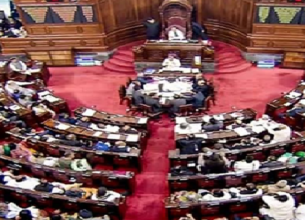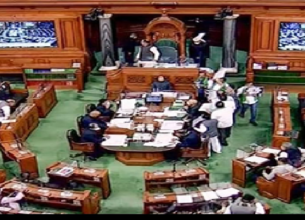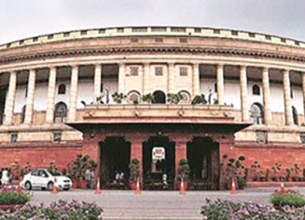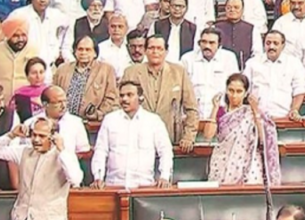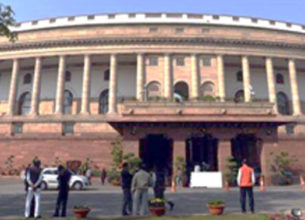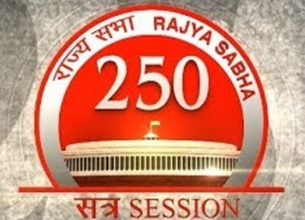FINANCE BILL PASSED IN LOK SABHA WITHOUT DEBATE
24, Mar 2020
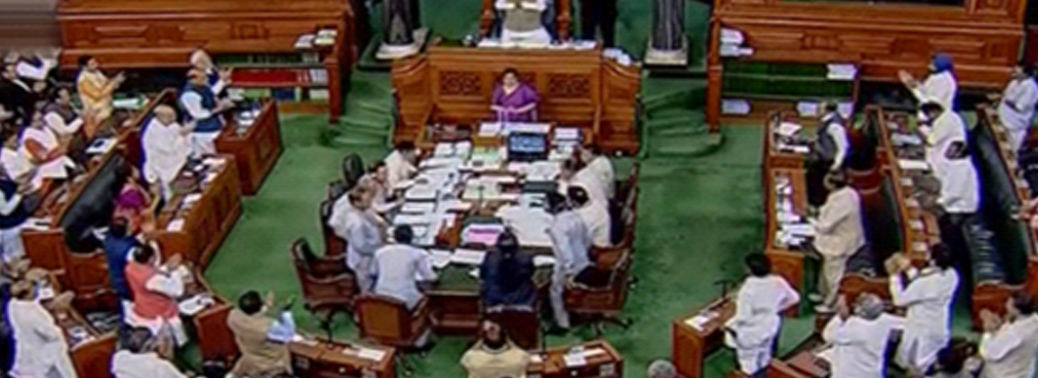
Prelims level : Parliament
Mains level : GS–III Government Budgeting.
Why in News?
- The Lok Sabha passed the Finance Bill, by voice vote without discussion, amid ruckus in the House with opposition parties seeking a fiscal stimulus package in the wake of the Coronavirus outbreak.
Key Features of the Bill:
- In the Union Budget 2020-2021, the government proposed to spend Rs 30, 42,230 crore in the next financial year, 12.7% higher than the revised estimate of 2019-20. By passing the Bill, these financial proposals have been given effect.
- The government has assumed a nominal Gross Domestic Product (GDP) growth rate of 10% in 2020-21, versus the nominal growth estimate at 12% for 2019-20. It expects that receipts will increase by 16.3% to Rs 22, 45,893 crore, owing to higher estimated revenue from divestment.
- While several amendments were passed, finance minister withdrew some affecting non-resident Indians.
- In the passed Bill, NRIs having income above Rs 15 lakh from business in India will fall under the tax net, but their global income will not be taxed in India.
- Further, the tax deducted at source (TDS) rate on payment of dividend to non-resident and foreign company has been set at 20%.
- The finance minister had introduced the new system of optional income tax slabs for individual taxpayers, where deductions and exemptions cannot be claimed, which was also passed by the Upper House of Parliament.
- The proposal for taxing dividends in the hands of shareholders by abolishing the dividend distribution tax (DDT) was also passed. While the new rule kicks into effect from April 1, 2020, the government has clarified that shareholders will have no tax liability if the company issuing the dividend has paid the DDT before April 1.
What is the Finance Bill?
- The Finance Act is an act of Parliament by which the Union Government of India gives effects to the financial proposals given by the government for the following financial year.
- The finance bill is introduced to the Lower House after the Union Budget is presented by the Finance Minister. Once the proposals are passed by the parliament and assented to by the President, it becomes the Finance Act of that year.
- There is a new Finance Act every financial year which makes this act an act that renews itself every year. This act basically is an umbrella act that includes all the government’s financial policies.
How is the Finance Bill Passed?
- The Finance Bill is introduced in Lok Sabha. Rajya Sabha can recommend amendments in the bill. However, the bill has to be passed by the Parliament within 75 days of introduction.
What is the difference between a money bill and Finance bill?
- While all Money Bills are Financial Bills, all Financial Bills are not Money Bills.
- For example, the Finance Bill which only contains provisions related to tax proposals would be a Money Bill. However, a Bill that contains some provisions related to taxation or expenditure, but also covers other matters would be considered as a Financial Bill.
- The Compensatory Afforestation Fund Bill, 2015, which establishes funds under the Public Account of India and states, was introduced as a Financial Bill.
- Finance Bill has the provision of including recommendations from Rajya Sabha, however, in case of a Money Bill, it is not mandatory.
- In case of a Money Bill, Lok Sabha has the right to reject the recommendations of the Upper house or Rajya Sabha.



